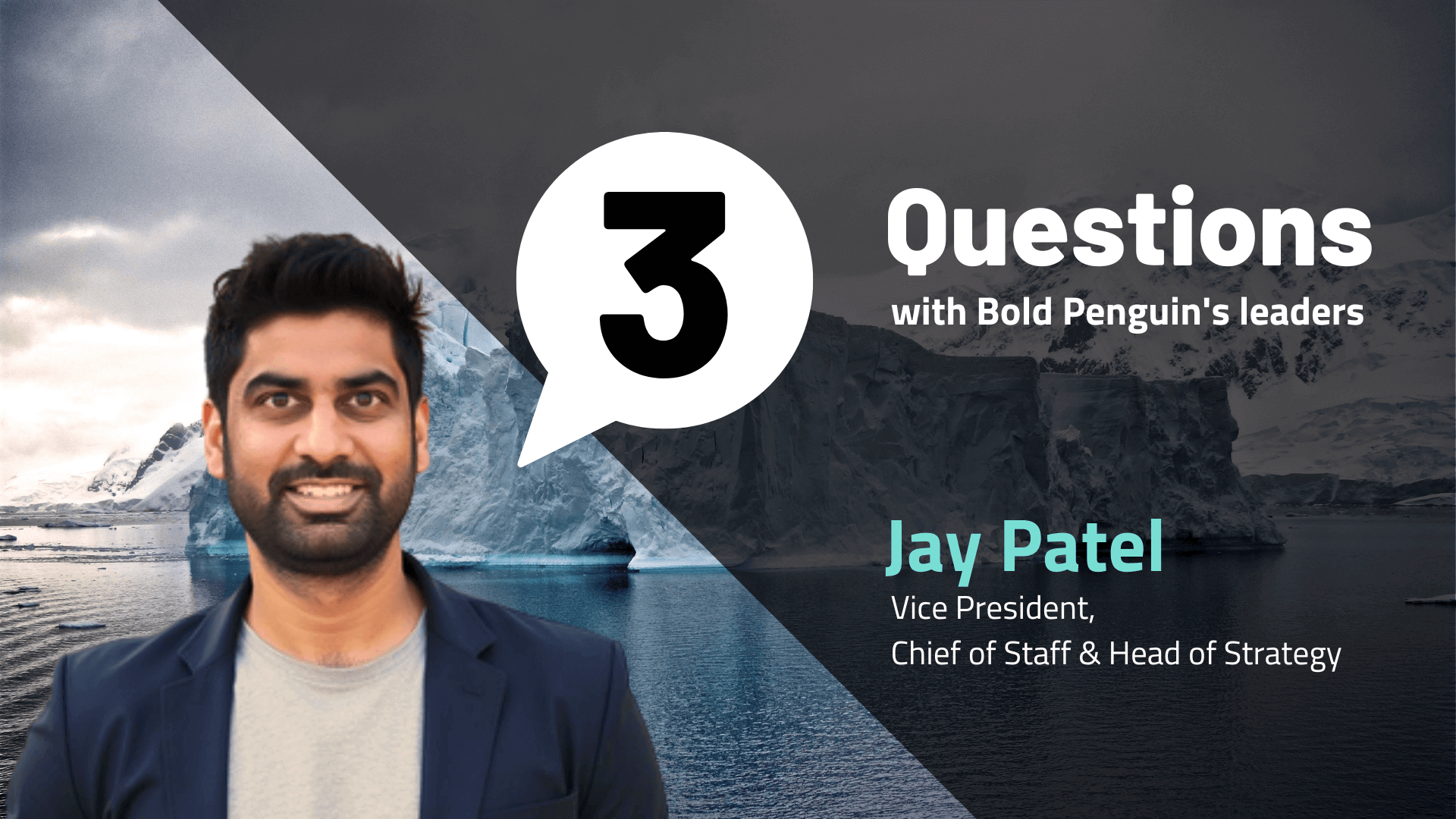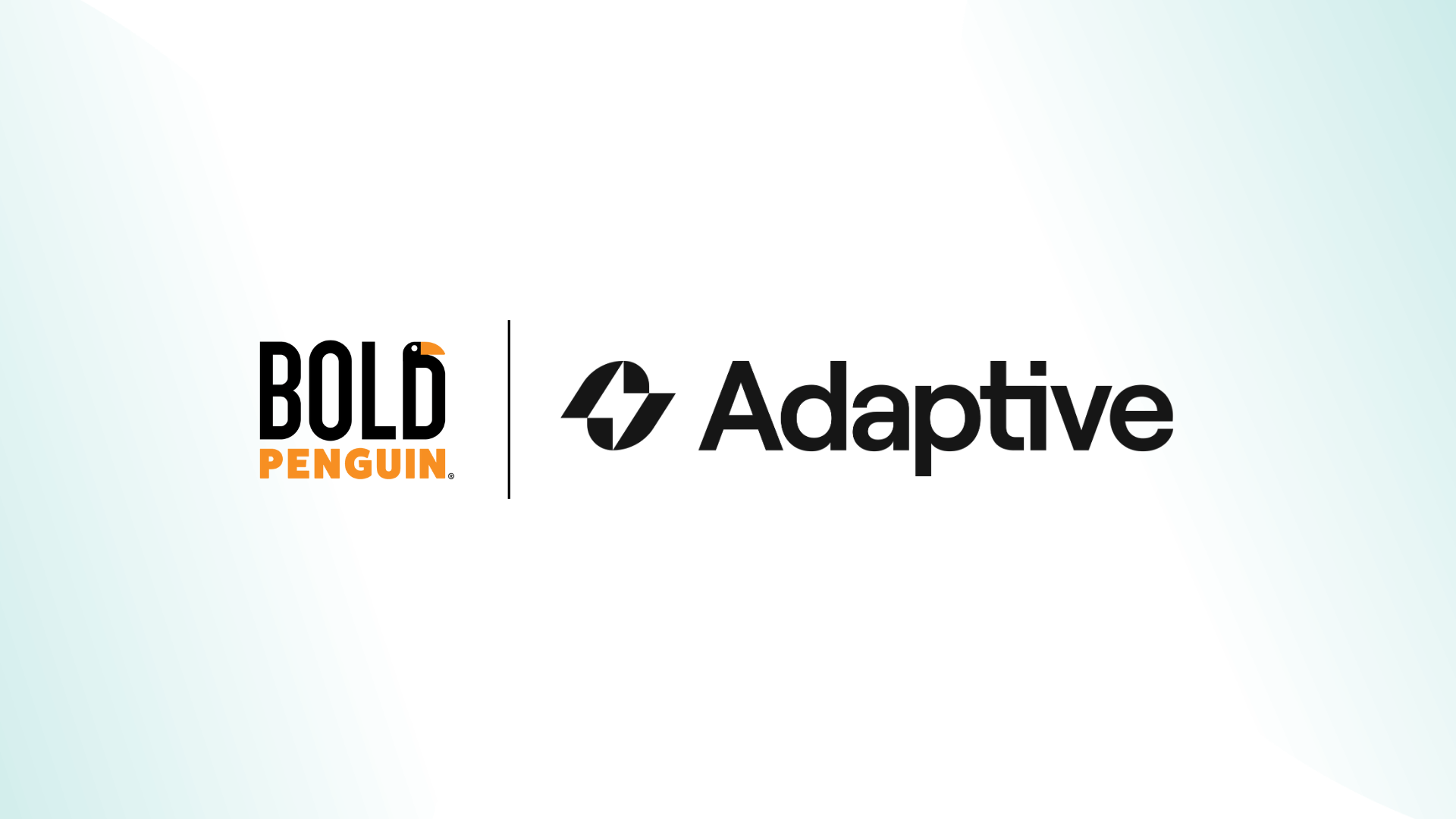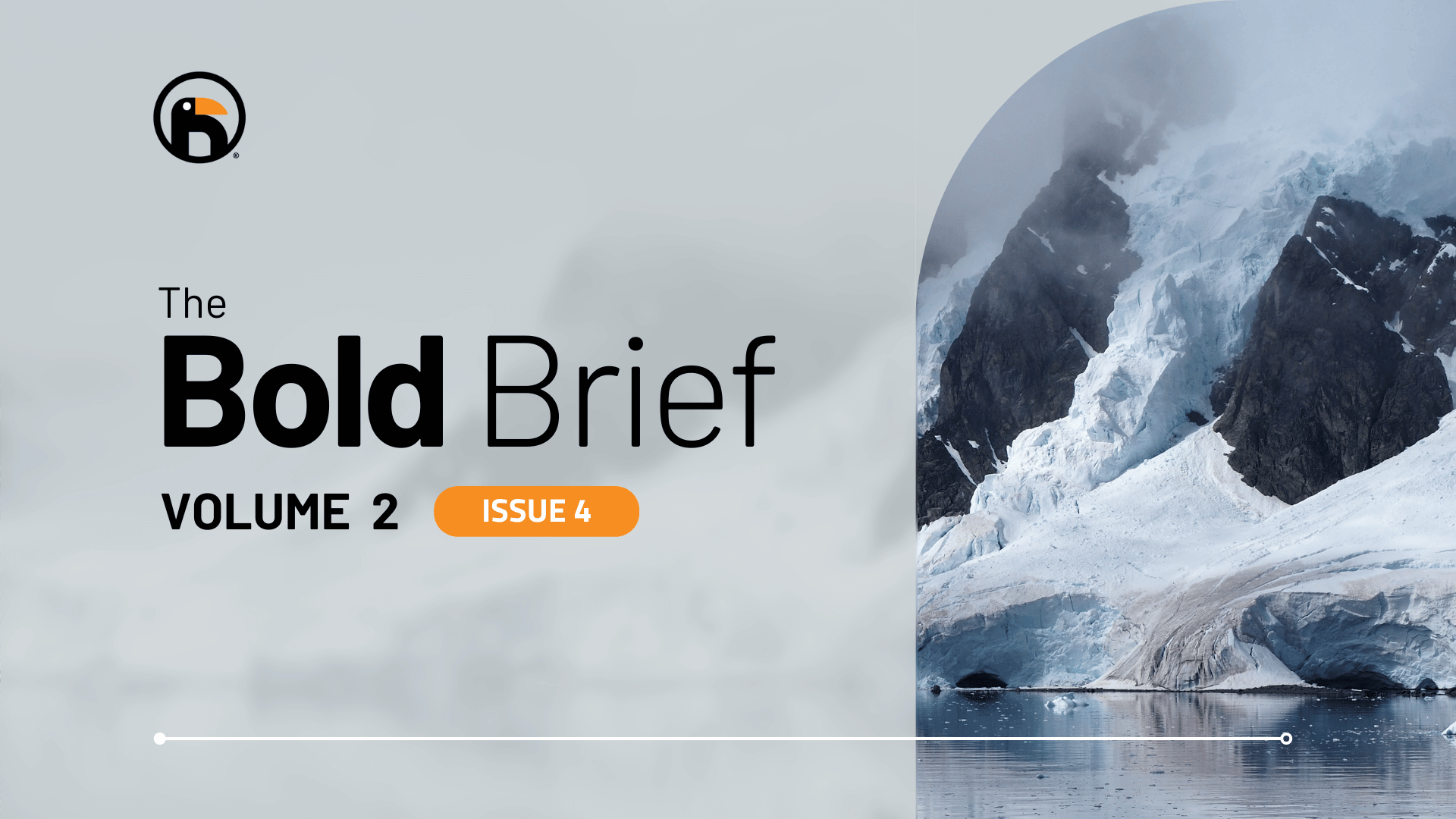3 Questions: Marc DeLeonibus, Bold Penguin Co-Founder
Bold Penguin’s Co-Founder Dishes on Being an [Insurance] Agent of Change

1. How has the agent’s role changed? What are some subtle or overlooked trends that have had an outsized impact on this end of the business?
In some key ways it really hasn’t changed. To me the role of an agent was, is and will be as a trusted advisor; the professional SMB owners turn to when they need to safeguard their businesses, employees, and property against the unexpected. What has changed–and continues to evolve–is how customers and their agents interact and collaborate
Where agents once might have been members of the same physical community, today an agent might be someone a business owner has never met, but found because that agent built an effective digital presence: these two parties met where the business owner wanted to be met. The agent built a relationship in part by listening and explaining insurance options in a manner that made sense to the prospective customer. I think these trends of building customer trust digitally within a niche focus will enable smaller agencies to compete and thrive for years to come.
2. Agency networks help close the competitive gap between small and large agencies. What are some of the tools that drive successful execution, irrespective an agency’s size or reach?
Agency networks fill a valuable role in the insurance ecosystem by helping growth-focused agencies gain access to resources and markets they would never be able to obtain on their own. Resources and support delivered by many agency networks have enabled smaller and growing agencies to punch way above their weight class.
Carrier appetites change as lines of business become less or more profitable. Smaller agencies sometimes take an expedient approach to business renewals–just renew rather than take that customer to market for a better price. A networked agent, however, has greater access to commercial lines ratings platforms and other tools that efficiently survey the market as needed to find the best home for their customer.
Access to these and other resources are creating a more level playing field–and this ultimately creates better customer experiences.
3. Is there a single source of data–"one true source" of intel–that you see as a game changer at either the agency or industry level that empowers agents and brokers to think proactively rather than reactively.
I’m not convinced there IS a single data point that is the proverbial game changer. Instead I think it's vital for an agency to understand the data specific to sales journeys that turn their prospects into paying customers.
Everything along that path should flow through a Customer Relationship Manager (CRM). e.g., SalesForce or other vendors’ products. Also, consider what motivates your prospects: Price? Security, carrier coverage/policy-holder service? Quality of agency service to customer after bind?
Without this kind of data-awareness, agencies are forced to be reactive. Properly implemented CRMs let businesses do efficient “triage”--quickly decide whether to devote resources to converting them, or to pass, possibly by referring them to the Bold Penguin Exchange or other similar tool.
The best approaches begin with understanding your desired outcomes. For example, start by knowing how much revenue each relationship should generate in year 1; then work backwards to make sure you’re prioritizing engagement with customers that help you hit your goals. So, instead of “one true source,” you’re building a balanced data diet of customer intel that can include:
- Agency profiles
- Origination and engagement–including preferred communication channels
- Number of touches before the prospect converted or was closed out
- How did they close?
- Time and overhead cost associated with closing



